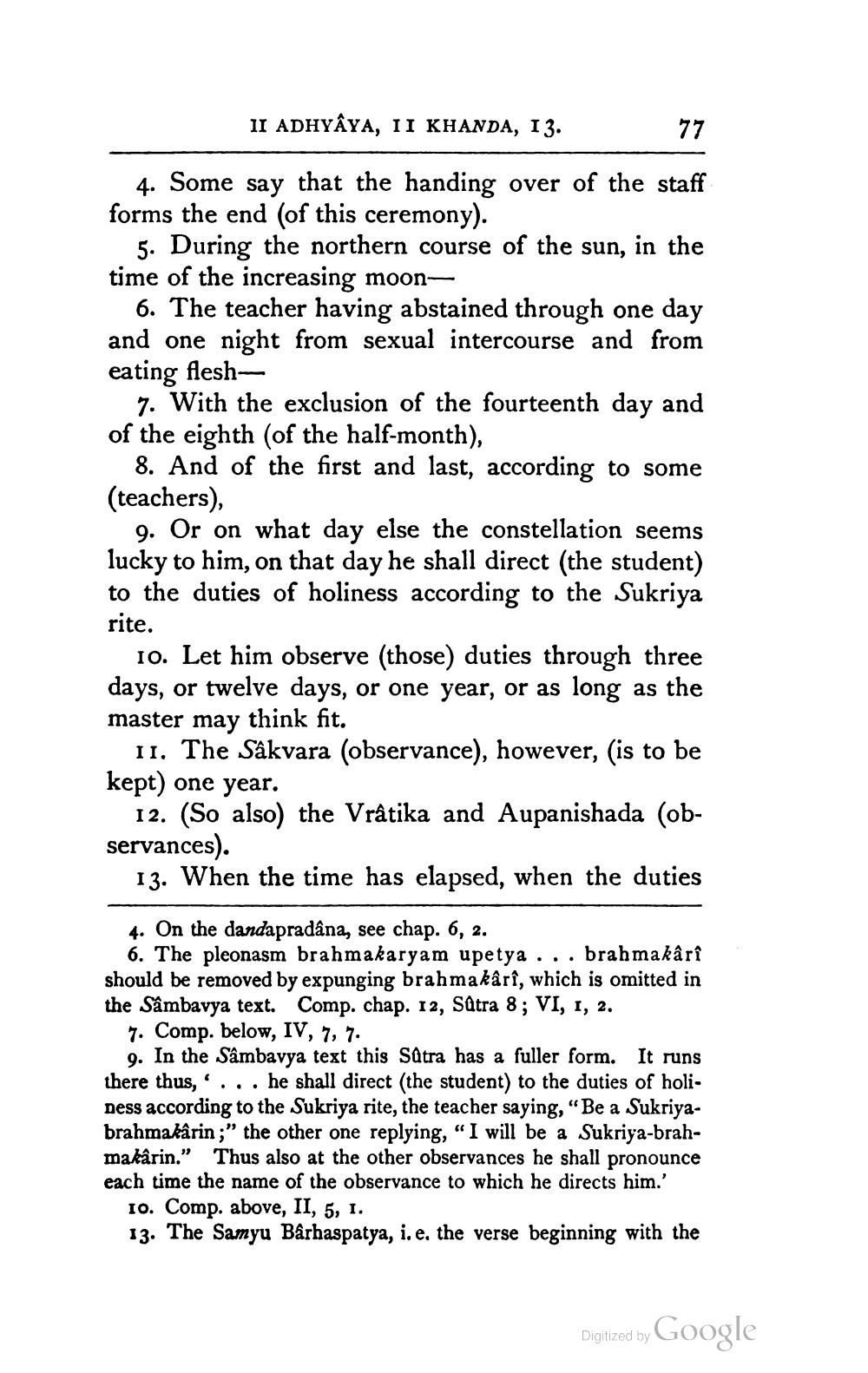________________
II ADHYAYA, II KHANDA, 13.
77
4. Some say that the handing over of the staff forms the end (of this ceremony).
5. During the northern course of the sun, in the time of the increasing moon
6. The teacher having abstained through one day and one night from sexual intercourse and from eating flesh
7. With the exclusion of the fourteenth day and of the eighth (of the half-month),
8. And of the first and last, according to some (teachers),
9. Or on what day else the constellation seems lucky to him, on that day he shall direct (the student) to the duties of holiness according to the Sukriya rite.
10. Let him observe (those) duties through three days, or twelve days, or one year, or as long as the master may think fit.
11. The Sâkvara (observance), however, (is to be kept) one year.
12. (So also) the Vrâtika and Aupanishada (observances).
13. When the time has elapsed, when the duties
4. On the dandapradâna, see chap. 6, 2.
6. The pleonasm brahmakaryam upetya ... brahmakârî should be removed by expunging brahmakârî, which is omitted in the Sâmbavya text. Comp. chap. 12, Sätra 8; VI, 1, 2.
7. Comp. below, IV, 7, 7.
9. In the Sâmbavya text this Sutra has a fuller form. It runs there thus,' ... he shall direct (the student) to the duties of holiness according to the Sukriya rite, the teacher saying, “Be a Sukriyabrahmakârin;" the other one replying, “I will be a Sukriya-brahmakârin.” Thus also at the other observances he shall pronounce each time the name of the observance to which he directs him.'
10. Comp. above, II, 5, 1. 13. The Samyu Bârhaspatya, i. e, the verse beginning with the
Digitized by Google




